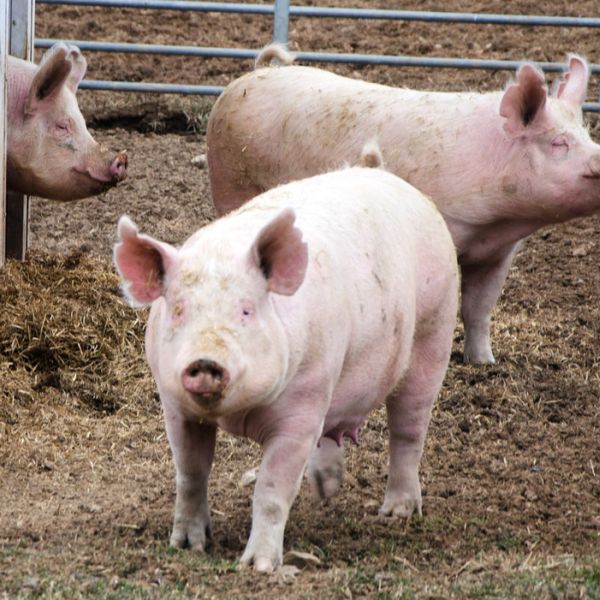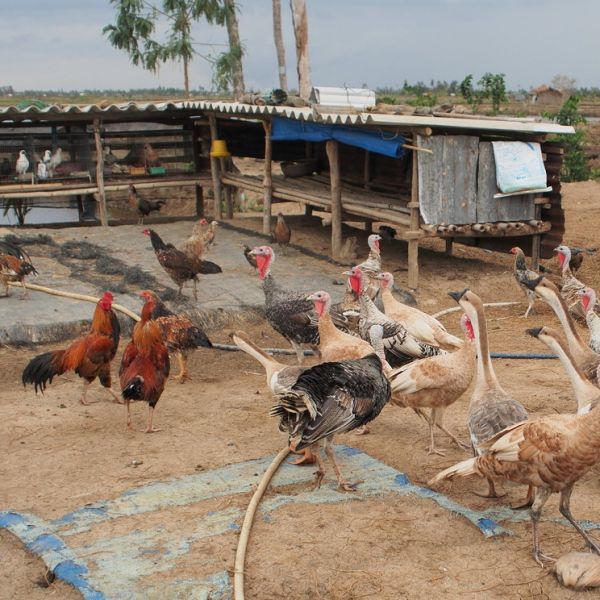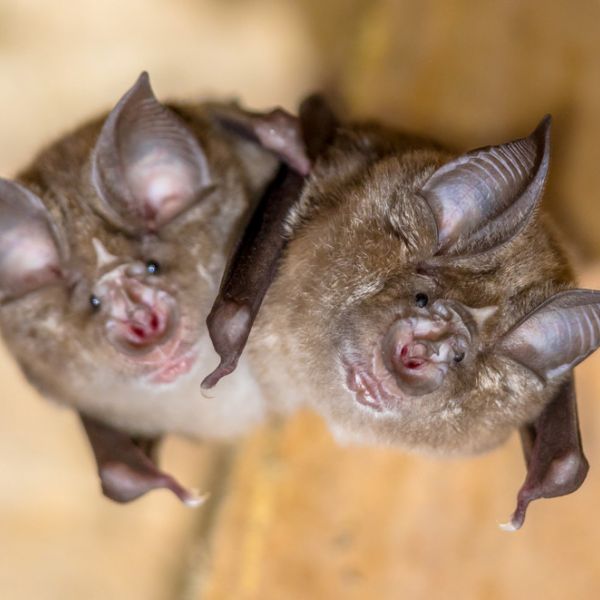News

Sep 21, 2020
Wastewater sampling may give advanced warning of potential COVID-19 outbreaks
Wastewater sampling for coronavirus on campus and in the surrounding community could alert University decision makers to a potential outbreak several days before individuals exhibit symptoms of an infection. The initiative — part of Penn State’s multilayered approach to test, monitor and mitigate for COVID-19 — could enable leaders to take swift actions to minimize the virus’s spread with the goal of helping to protect the health and safety of the community.
Full Article

Sep 14, 2020
Penn State researchers to study novel coronavirus potential to infect livestock
A grant from the U.S. Department of Agriculture will enable Penn State researchers to study the potential for SARS-CoV-2, the novel coronavirus that causes COVID-19, to infect and spread among livestock.
Full Article

Aug 31, 2020
Vietnam farmers' poultry sales during outbreaks may increase virus transmission
Small-scale poultry farmers in Vietnam tend to respond to viral outbreaks of highly pathogenic avian influenza (HPAI) by rapidly selling their birds as a way to avoid financial loss, according to a new study by an international team of researchers. As these birds are commingled with other birds in markets and trading networks, this practice may increase the likelihood of widespread disease transmission.
Full Article

Aug 26, 2020
Measles outbreaks in Niger linked to rainfall and temperature, study finds
Rainfall and temperature drive agricultural activity, which, in turn, influences patterns of measles outbreaks in the West African nation of Niger, according to an international team of researchers. The findings may be useful for improving vaccine coverage for seasonally mobile populations within Niger and other countries.
Full Article

Aug 26, 2020
Faculty funded to study how people's movement impacts COVID-19 transmission
Nita Bharti, Lloyd Huck Early Career Professor and assistant professor of biology at Penn State, and her collaborator Anthony Robinson, associate professor of geography at Penn State, have been awarded seed funding from the Huck Institutes of the Life Sciences at Penn State to study how monitoring the movement of people can potentially be used as a predictor or early indicator of COVID-19 transmission and guide health policy decisions.
Full Article

Aug 25, 2020
Reducing transmission risk of livestock disease
The risk of transmitting the livestock virus PPRV, which threatens 80% of the world’s sheep and goats, increases with certain husbandry practices but not herd size. A new study, led by researchers at Penn State, investigated how transmission of PPRV might change at different scales and identified specific husbandry practices associated with increased odds of infection — including the introduction of sheep and goats to the herd, sheep or goat attendance at seasonal grazing camps, and the sales or gifting of goats from the herd.
Full Article

Sep 01, 2020
New tool for identifying endangered corals could aid conservation efforts
Coral conservation efforts could get a boost from a newly developed genotyping “chip” — the first of its kind for corals. The chip allows researchers to genetically identify corals and the symbiotic algae that live within the coral’s cells, a vital step for establishing and maintaining genetic diversity in reef restoration efforts.
Full Article

Aug 12, 2020
Determining how a coronavirus protein takes over human protein-making machinery
Jean-Paul Armache, assistant professor of biochemistry and molecular biology, has been awarded seed funding from the Huck Institutes of the Life Sciences at Penn State to use cryo-electron microscopy to study how an important SARS-CoV-2 protein binds to and takes over the human ribosome — a protein factory in the cell that the virus uses to copy itself.
Full Article

Jul 28, 2020
Researchers identify evolutionary origins of SARS-CoV-2
By reconstructing the evolutionary history of SARS-CoV-2, the virus that is responsible for the COVID-19 pandemic, an international research team of Chinese, European and U.S. scientists has discovered that the lineage that gave rise to the virus has been circulating in bats for decades and likely includes other viruses with the ability to infect humans.
Full Article

Jul 15, 2020
Huck Institutes tackles pandemic with true 'We Are' spirit
For faculty, staff and administrators working across Penn State’s Huck Institutes of the Life Sciences, the idea that the whole is greater than the sum of its parts is more than an abstraction. It’s an everyday reality.
Full Article